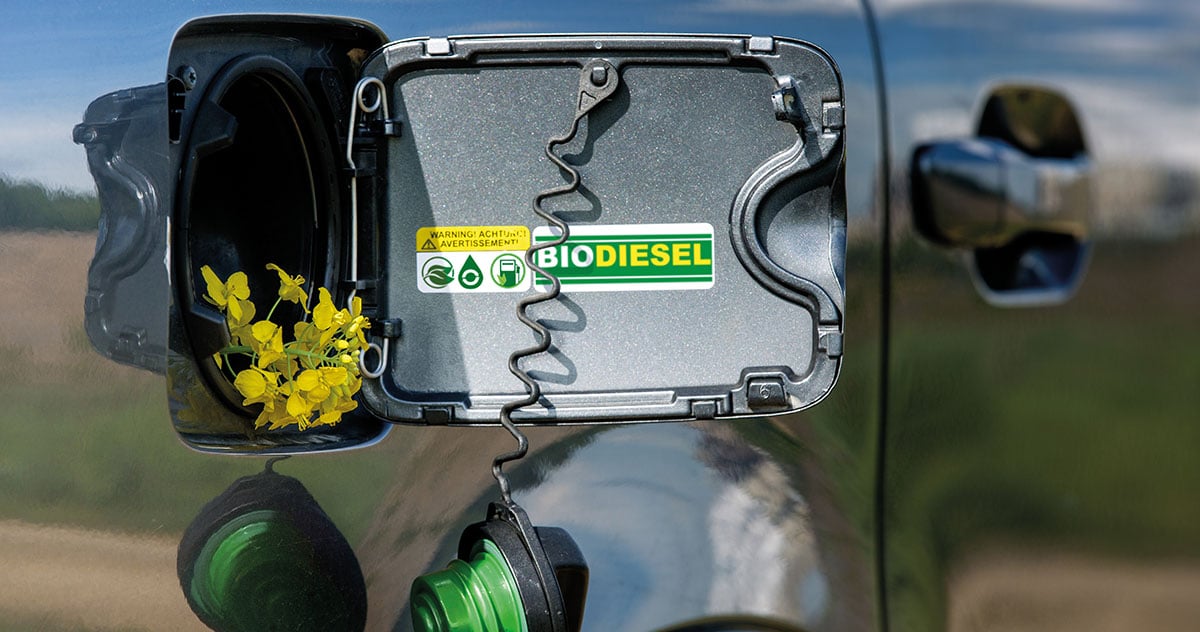Biodiesel
Home
- / Biodiesel
Effective biodiesel distillation using the Short-Path Evaporator
Biodiesel is proving to be one of the most important renewable alternatives in the transport sector and should contribute significantly to sustainable mobility in the future.
In the course of the "tank or plate" discussion, the use of waste and residual materials for biodiesel production are becoming increasingly important for the biodiesel industry. Compared to plant-based oils, these raw materials have a relatively inhomogeneous composition with a higher proportion of free fatty acids (FFA) and an increased soap, polymer, and sulfur content. As a result, minimum biodiesel blending quality requirements are not achievable using the classical transesterification process. Therefore, the thermally sensitive crude biodiesel must be upgraded through distillation in an additional process step to meet the criteria of the European Biodiesel Standard EN 14214.
Given this, special processes have emerged to distillate temperature-sensitive products such as biodiesel, which do not involve processes at high temperatures or high pressures. Today, state-of-the-art technology for efficient biodiesel distillation is short-path technology, which is gentle on the product. The short-path evaporator combines a thin-film evaporator and condenser in one apparatus. The one-step, dynamic process ensures gentle evaporation and efficiently separates even complex impurities. As a result, as much as 99 percent of the valuable material can be recovered from the crude biodiesel with the short-path evaporator while at the same time complying with all parameters of EN 14214.
Additional advantages of the technology are:
- Above-standard ester contents.
- Minimal fouling effect and uncomplicated cleaning.
- Flexible adaptation to fluctuating feedstock compositions.
Compared to the rectification column, the short-path evaporator has significantly lower investment and operating costs. In the Pilot Plant / Technical Center, biodiesel feedstocks can be purified in the short-path evaporator on a trial basis and are tested for their blending capability. After completing the test series, a detailed pilot plant report and around 30 to 40 samples are available for further analysis.





